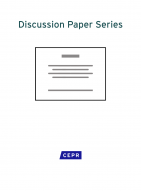DP565 Distributive Politics and Economic Growth
This paper studies the relationship between political conflict and economic growth in a simple model of endogenous growth with distributive conflicts. We study both the case of two `classes' (workers and capitalists) and the case of a continuum distribution of agents, characterized by their relative shares of capital and labour. We establish several results concerning the relationship between the political influence of the two groups and the level of taxation, public investment, redistribution of income and growth. For example, we show that policies which maximize growth are optimal only for a government that cares only about the `capitalist'. Also, we show that in a democracy (where the `median voter theorem' applies) the rate of taxation is higher and the rate of growth lower, the more unequal is the distribution of wealth. We present empirical results consistent with these implications of the model.


